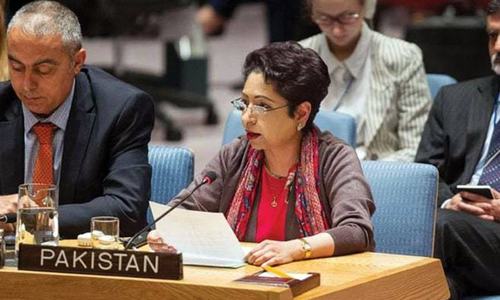The United States is prepared to partner with Pakistan to defeat terrorist organisations seeking safe havens, US Secretary of State Rex Tillerson wrote in an op-ed published in the New York Times on Wednesday.
In an opinion piece titled 'I Am Proud of Our Diplomacy', the US's top diplomat said Pakistan "must demonstrate its desire to partner with us" to prevent Afghanistan from becoming a safe haven for terrorists.
"Pakistan must contribute by combating terrorist groups on its own soil," he wrote, adding that a commitment to stopping terrorism and extremism had motivated the Trump administration to unveil a new South Asia strategy, which focuses on Afghanistan.
“That country [Afghanistan] cannot become a safe haven for terrorists, as it was in the days before the Sept 11 attacks.”
Read: 'Trump has put Pakistan on notice,' US VP Pence warns in surprise Kabul visit
Tillerson defended his country's foreign policy record in the article, saying progress had been made in the last year to rein in North Korea's nuclear ambitions and to counter the “immense challenges” posed by Russia, China and Iran.
The secretary said some 90 per cent of Pyongyang's export earnings had been cut off by a series of international sanctions after the Trump administration “abandoned the failed policy of strategic patience”.
Tensions have escalated dramatically on the Korean peninsula this year after the isolated but nuclear-armed regime staged a series of atomic and intercontinental ballistic missile (ICBM) tests — and as US President Donald Trump and North Korean leader Kim Jong-Un traded personal insults.
Washington wants North Korea to abandon its nuclear programme and has spearheaded three rounds of UN sanctions against the isolated regime, restricting crucial exports of coal, iron, seafood and textiles from the cash-starved state.
Pyongyang has hit out at those sanctions, calling the latest round “an act of war”, and has vowed to never give up its nuclear programme.
In his piece, Tillerson said “a door to dialogue remains open” for Pyongyang but warned “until denuclearization occurs, the pressure will continue”.
At the same time he called on China — Pyongyang's only major ally — to “do more” to pressure North Korea.
Trump's administration has been dogged by allegations his campaign team colluded with Russia to help him win last year's election.
Addressing relations with Moscow, Tillerson said the Trump administration had “no illusions about the regime we are dealing with” and that they were “on guard against Russian aggression”.
But he added that Washington needed to “recongize the need to work with Russia where mutual interests intersect”, citing Syria civil war where the two countries have backed opposing sides but pushed for peace talks.
On Iran he struck a less conciliatory tone.
“The flawed nuclear deal is no longer the focal point of our policy toward Iran,” he warned. “We are now confronting the totality of Iranian threats.”
He also defended his cuts to the State Department and USAID budget, saying they were designed to “address root problems that lead to inefficiencies and frustrations”.
Critics say Tillerson's first year in office has seen scores of key diplomatic posts go unfilled, embassies hampered by cuts and many veteran staff leave the foreign service altogether.













































